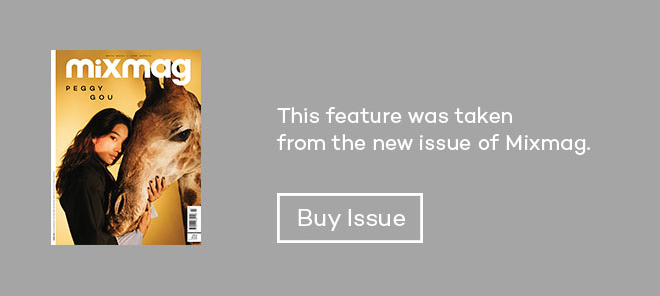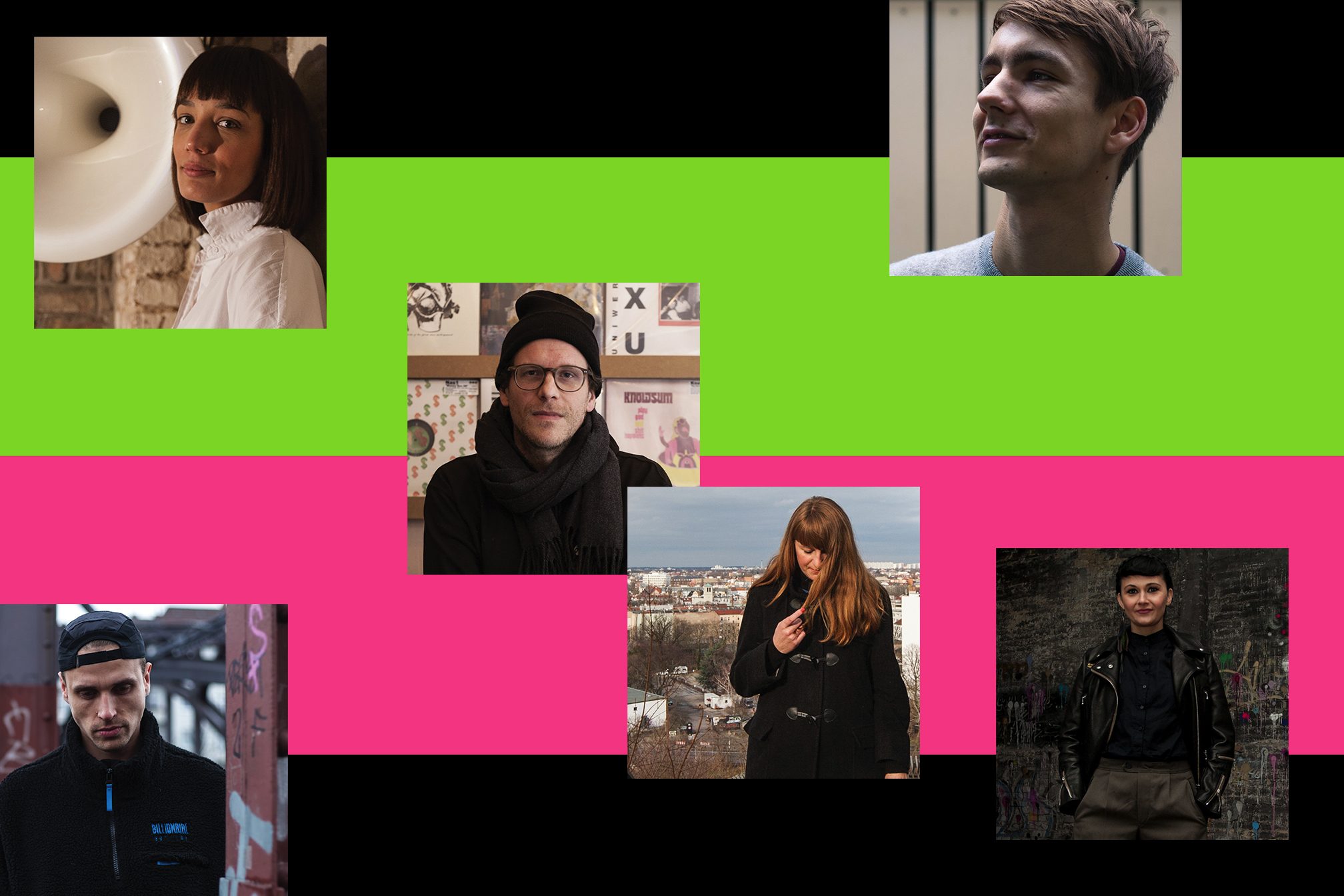 Features
Features
Meet the resident DJs at the heart of Berlin's club scene
Six DJs keeping the city's nightlife thriving
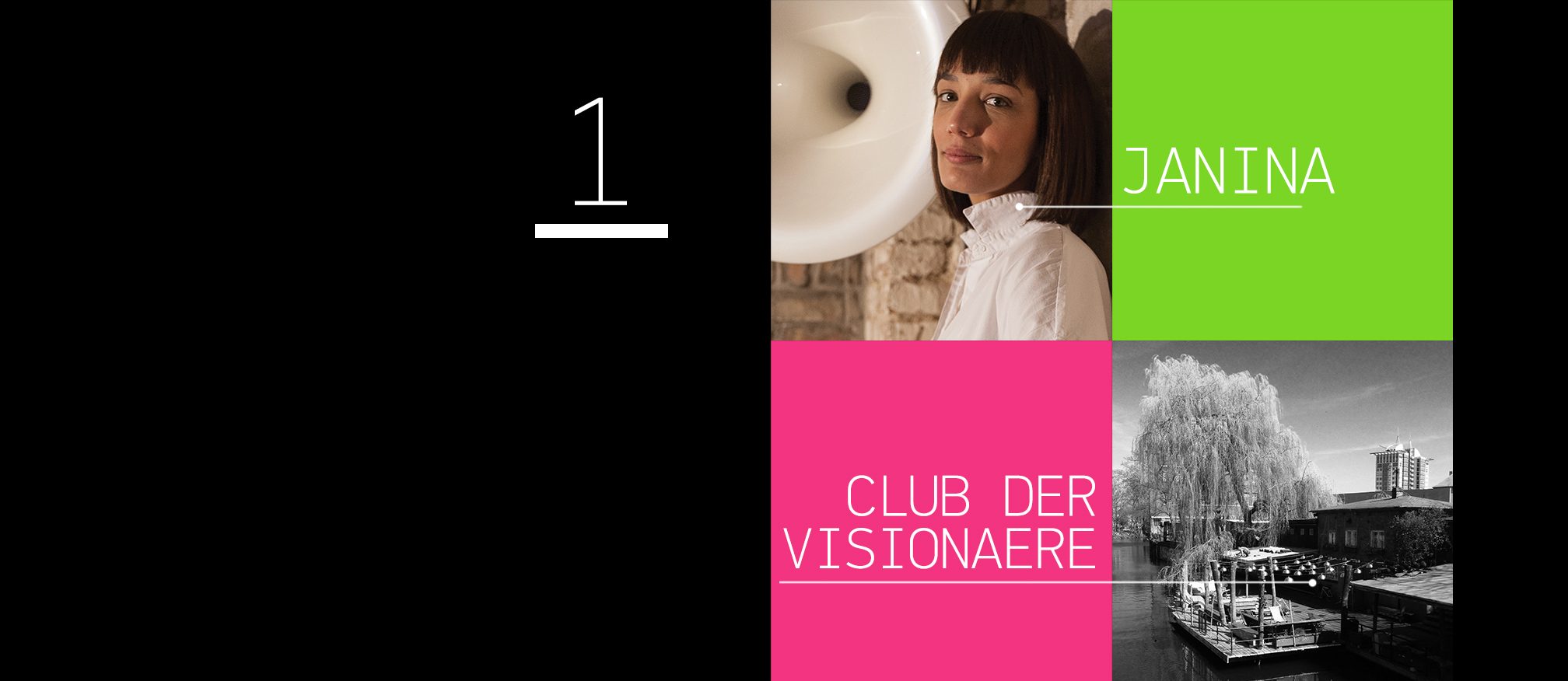
One of only a few resident Berlin DJs born and raised in the city, Janina bought her first set of decks in her teens and built up her knowledge of electronic music, culture and vinyl while working at DNS Records. After doing some gigs at legendary waterside venue Club der Visionaere, Janina became a resident in 2004, at the tender age of 18. “Club der Visionaere was one of the first places in Berlin that put on open-air afterparties on the river. People just came without knowing what would happen and who was DJing. I remember my first time was on May 1, around 2001, and Sammy Dee, Ricardo, Zip and Matthew Herbert were playing.” She continues to DJ there each month, as well as at DC10, Berghain and other clubs across Europe, sharing the decks with the likes of Ricardo Villalobos, Richie Hawtin, Robert Hood, Chris Liebing, Thomas Melchior, Fumiya Tanaka and Cassy. In addition, she has her own night at Tresor and at the Unusual Suspects nights at Sankeys Ibiza. She’s made mixes for the Into The Valley music festival and Vice. Her plans for this year include launching her own label and playing festivals like Moonland in Estonia as well as continuing her residencies in Ibiza and at Tresor and CdV. As for Berlin, “of course it’s changed, everything is changing... but it still has no closing times, the best DJs and affordable living. Lots of artists reside in the city and that is what gives Berlin its special character.”
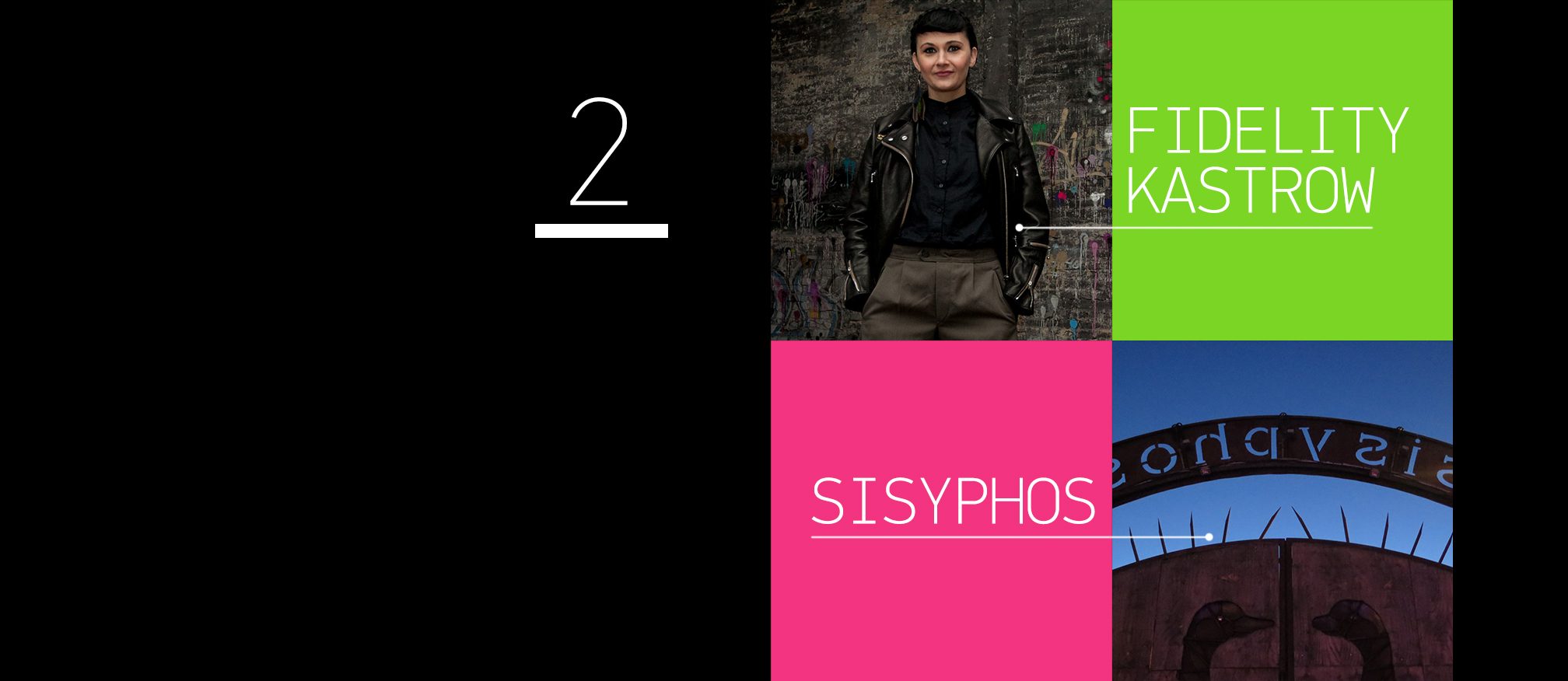
Fidelity Kastrow has been living in Berlin since she was eight years old, when it was still the capital of East Germany. “The fall of the Berlin Wall had a significant impact on my life and was followed by the reunification that in my experience first took part in the clubs, with the LGBTI community at the fore-front,” she says. “East Berlin was completely lawless for a few years, which made it easy for me to get into clubs as a very young teen.” Fidelity played her first DJ gig in her adopted city in 2007. Two months later she played Tresor´s reopening weekend, headlined UK clubs Canvas, Mass and SeOne, and became aresident at London’s itinerant fetish institution, Torture Garden. She’s been a resident at Berlin’s premier underground warehouse club Sisyphos since 2012, spinning energetic, high-intensity techno every month in the club’s cavernous Hammahalle. “When I discovered Sisyphos it was a kind of salvation and gave me back that feeling I had in my early clubbing days, that sense of unity and community,” she says. “It felt rough, real and sincere, just like the Berlin I grew up in.” As well as DJing, she co-presents weekly radio show Berlin Soul, has written and co-written tracks and delivered vocals for Inspiral Carpets’ Martyn Walsh’s solo project Spartak, and released a vinyl EP on Sisyphos’ label Sisyphon. She is currently in the studio finishing more tracks.
Fidelity Kastrowy plays Berlin Berlin at Egg London on April 21
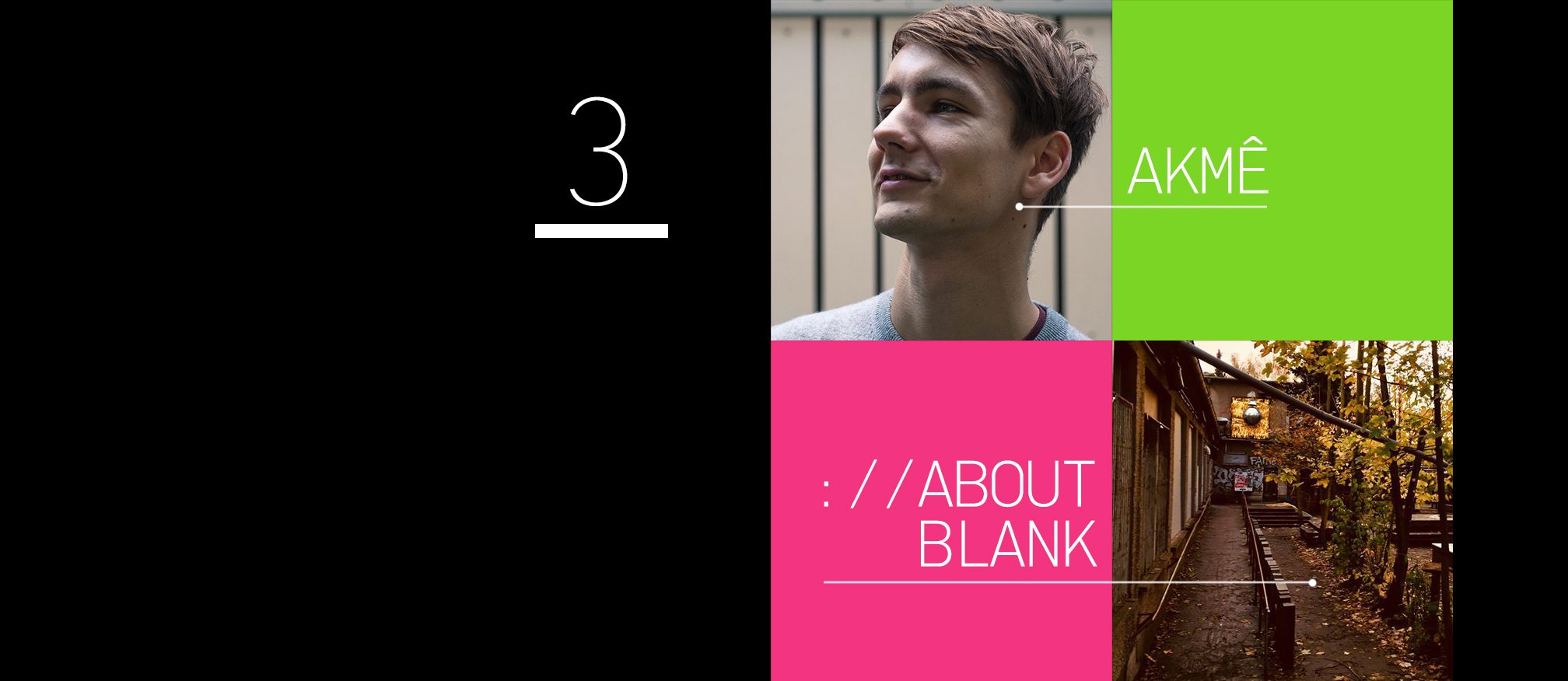
Born and raised in the suburbs of Potsdam, techno DJ and producer Akmê first developed a penchant for electronic music in the middle of the 2000s, throwing parties and spinning at Potsdam’s Spartacus club before moving to Berlin in 2011. Akmê’s ://about blank residency began in 2014 and has been the key to his success so far; it’s a place where he feels comfortable and can showcase the diversity of his sets. “The club is unique. Nowhere else in Berlin has such a political character,” he explains. “Every month at least one benefit party takes place, and there are always readings and discussions on political topics. Behind and in front of the scenes there is also an equal split between men and women. I’m glad I found a home that takes care of all these things; a dancefloor is also always a place of well-being, and not only for me but for everyone around me.” In 2017, Akmê released his hard-edged debut EP on Leipzig label Connwax, followed by a second track on an ://about blank compilation. He plans to devote 2018 to releasing more music as well as playing his first live set in the club in August 2018. “For me, producing is a form of relaxation. Most of the time I don’t think when I make music. I just clear my mind and get things done. I get influenced by everything around me – not only music, but life in general. In fact, I often listen to music without beats, such as classical: it’s a perfect soundtrack to all the city life happening around you…”
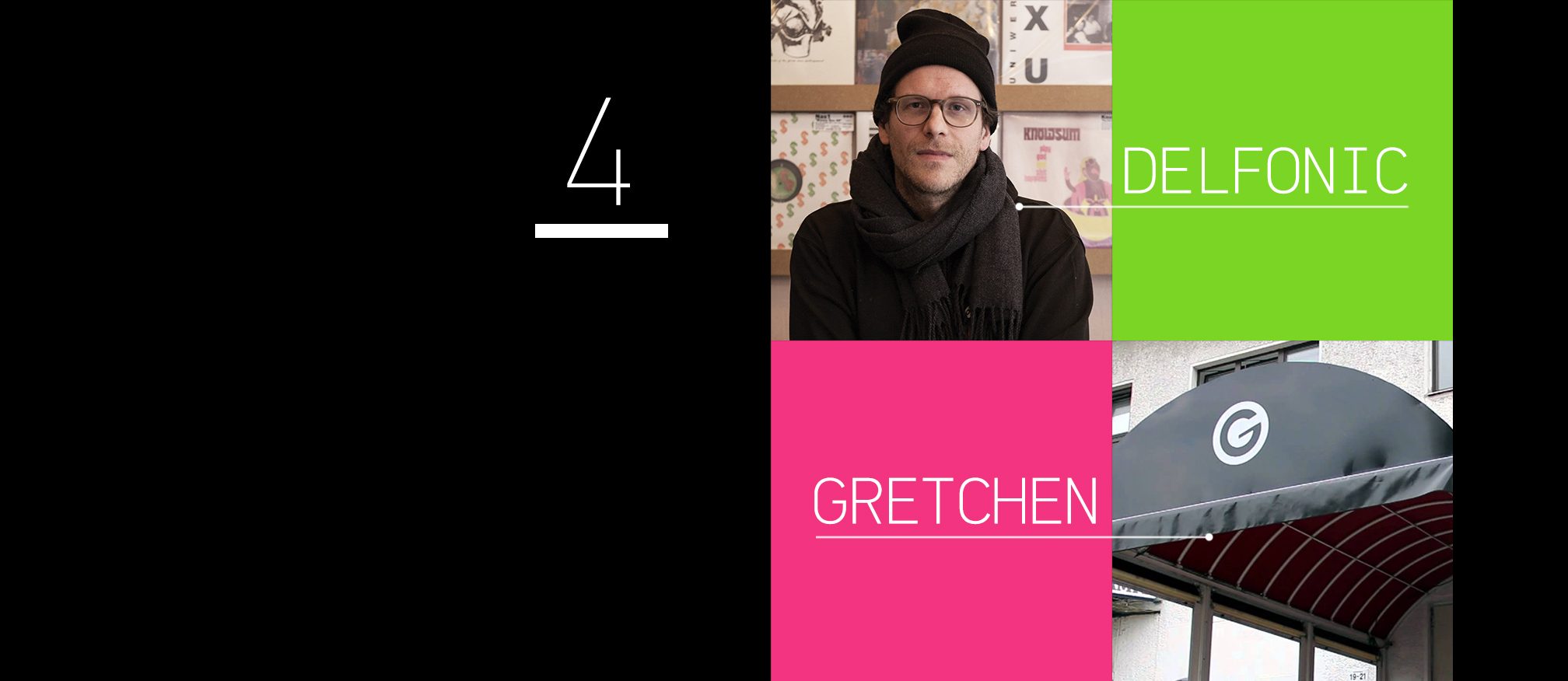
Markus Lindner, a.k.a. Delfonic, is one of Berlin’s veteran DJs, known today as much for his legendary record shop (Oye, which sells house, techno disco, funk, hip hop and various other genres) and working with labels (Box Aus Holz, Torben, Money $ex Records) as for his skill at blending genres and eras. “I moved to Berlin in 2001 because it was the only city in Europe I felt I could do what I want and be creative, but without any master plan,” he says. “It was the perfect city for my dreams and is still one of the last capital cities with a lot of freedom for music, art and creativity, though it has changed a lot and the pressure is much higher now. The scene is really strong nowadays and I like the fact that eclectic DJs and sets are more welcome, and that people are more open-minded than ten years ago.” Markus’ first residency was at cult Berlin venue ICON until its demise in 2011; he now holds down slots at Tresor’s OHM and Gretchen, also frequenting venues like Salon Zur Wilden Renate and Panorama Bar.“I love playing at Gretchen because I can switch between electronica, house, disco and so on,” he says. Over the past few years he has warmed up for Bonobo, Kaytranada, Machinedrum and DJ Krush, and has appeared at Soundwave, CTM, Splash and Fusion Festival. Having just launched a new webshop for OYE Records, he’s focusing on new releases on his labels and getting ready to play European events like Southern Soul in Montenegro.
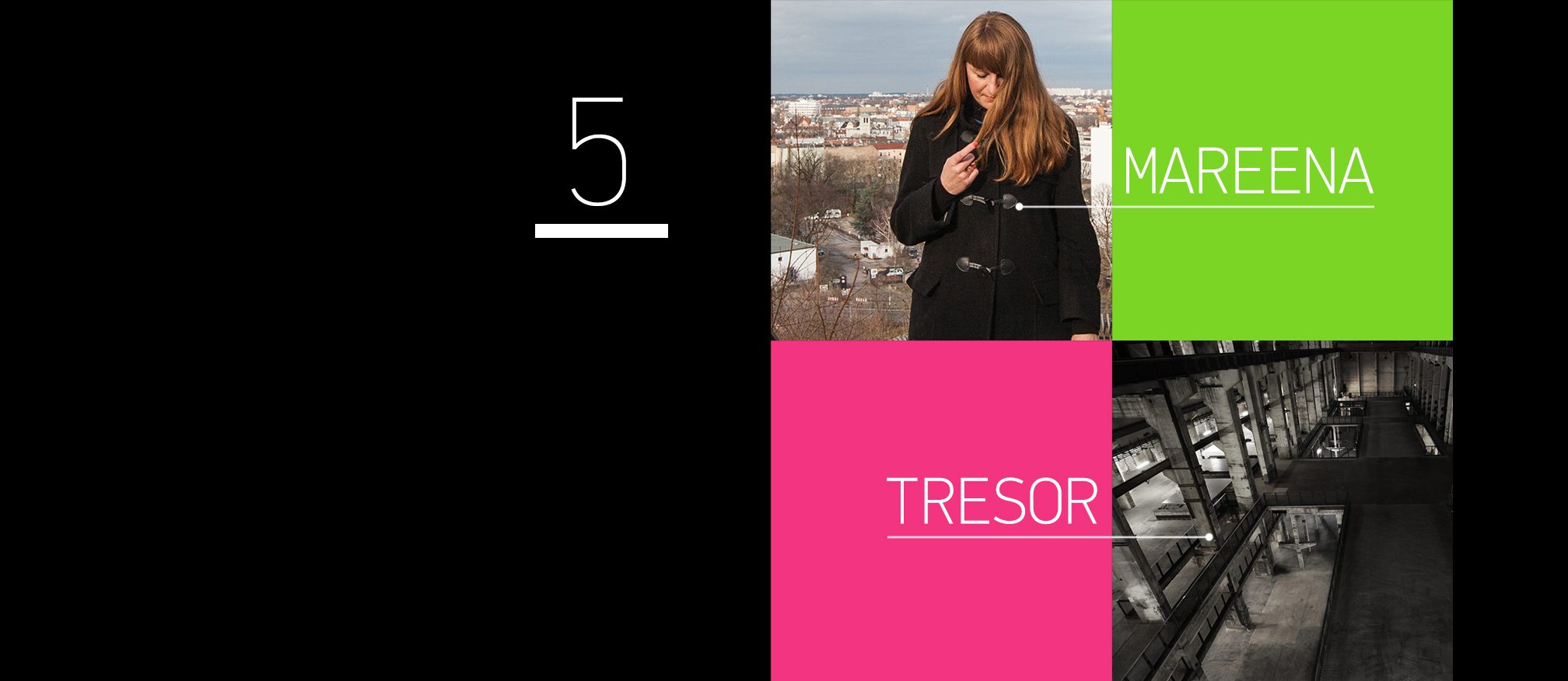
Having played her first party at the tender age of 12 (“a friend’s birthday, with cassettes and CDs”), Mareena moved to Berlin from her home town of Rostock in 2004 specifically to participate in the club scene. Over the last decade or so she has developed a solid profile as a dedicated but fluid selector, moving effortlessly between genres (house, techno, ambient, dub), and appearing at a variety of high-profile Berlin clubs (://about blank, Berghain, Griessmühle), as well as international venues. Her Tresor residency began in 2012. “The club’s history inspires me, as do the people that work there, the massive Void system and the special ‘Detroit/Berlin’ sound that it’s developed,” she says. She also works as a curator, currently for the monthly New Faces and quarterly Klubnacht events at Tresor, and she runs her own podcast, interview and event series under the name Unrush. Plans for the future include finally releasing ambient music on her own, and some techno alongside another artist, and more work on Unrush. “Lots of things have changed in my time here,” she says. “Some negative, like rising rents and gentrification and the constant distraction of smartphones in clubs. But many positive, like the huge variety of clubs and promoters who are pushing boundaries and putting on a colourful range of parties. And people here have become way more open-minded for other genres...”
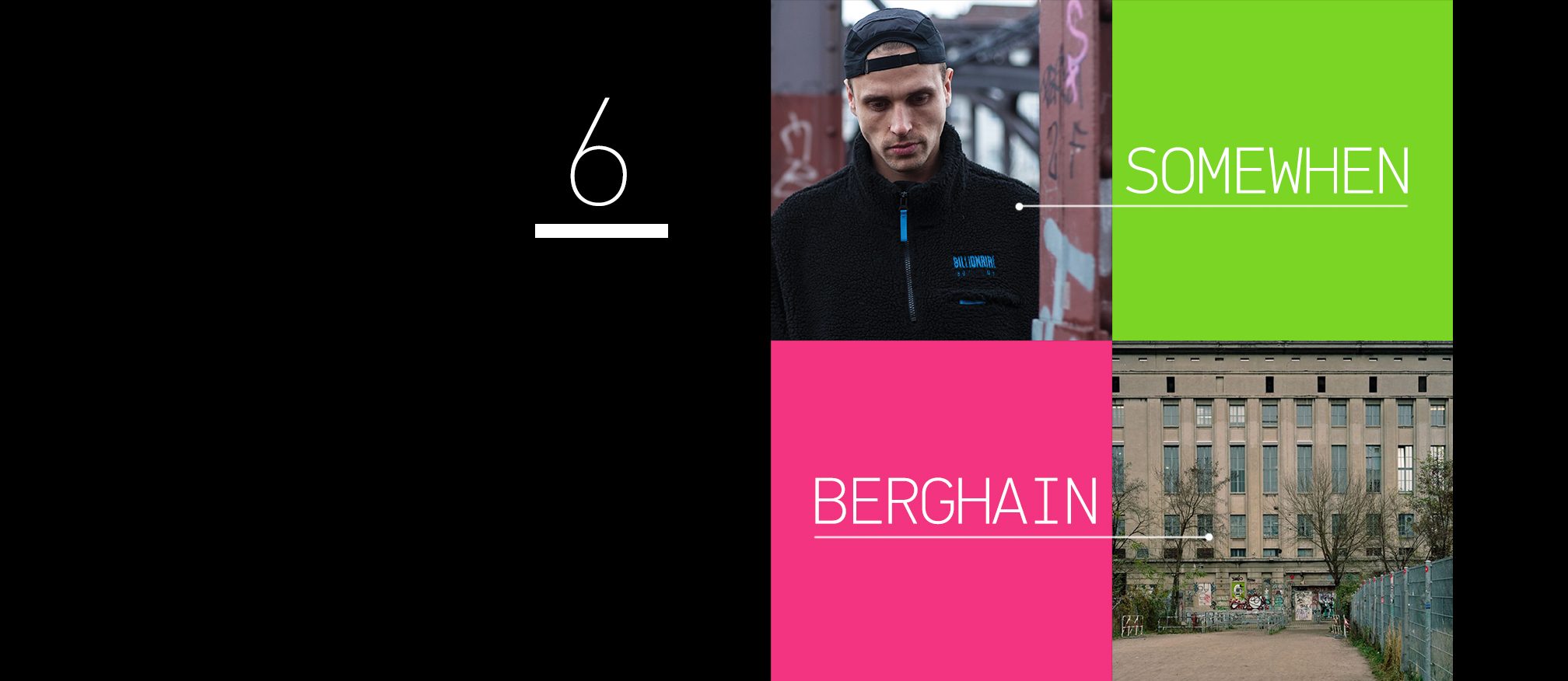
Somewhen (aka Szymon Rabowicz) was born to Polish parents, but grew up in Berlin’s Neukölln district when it had a reputation for gangs and criminals. “I mostly went to hip hop clubs in West Berlin back then, but the biggest difference, aside from the music, was that it mostly ended up in a fight,” he says. “You don’t see this really at techno parties.” Though he started his music career making hip hop, he shifted towards electronic music in recent years and joined Berghain as a resident in 2016. “The more I got into techno and clubbing in Berlin, the more important Berghain became in my life. I was a big fan of the club’s concept and the residents who played there every weekend. The DJs would play whatever they loved and the crowd was very open-minded and diverse. Needless to say, joining Ostgut Booking and becoming a resident was a big honour for me.” Following several self-released tracks – a highlight being 2014’s rhythmic and melodic ‘Kobalt’ – he released an EP (‘Null’) on Unterton in 2016, has a sinewy new EP out on Ostgut Ton in March, and plans to bring out his next EP on his own label, Sana. “It feels like every month there are a lot of fresh artists and promoters throwing underground, or not-so-underground, parties all over the place – and I think that’s a good thing. It’s what keeps the scene alive. Especially in Berlin, the mixture of established and smaller underground venues is important.”

